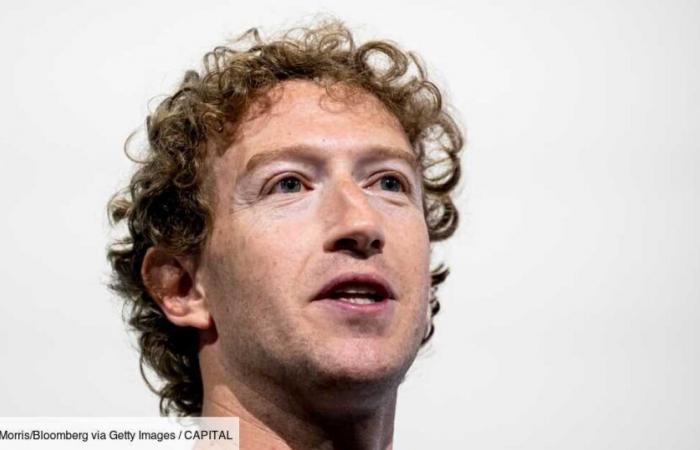© David Paul Morris/Bloomberg via Getty Images
In an internal memo addressed to Meta employees (Facebook, Instagram, WhatsApp) and revealed on January 12, 2025, vice-president of human resources Janelle Gale justified the removal of diversity objectives by recent legal developments in the United States. “The legal and policy landscape around diversity, equity and inclusion efforts is changing“, she explains. This measure marks a turning point for Meta, which renounces its commitment to the representation of women and ethnic minorities in its workforce. While the company says it will continue to look for candidates from different backgrounds, it will no longer set specific quotas.
This announcement comes in a context of widespread questioning of so-called “DEI” (diversity, equity and inclusion) policies in the United States. In 2023, the Supreme Court ended affirmative action in universities, a historic achievement in the fight for civil rights. Since then, several large companies, such as McDonald's, Ford and Amazon, have abandoned their DEI programs, considered too restrictive.
How to delete a Facebook account?
The end of diversity programs at Meta
This new strategic direction is causing concern among many organizations, particularly associations fighting against discrimination. Roy Austin, vice president for civil rights at Meta, announced his resignation in response to the decision. In an internal message, he described this development as “real betrayal of the principles of equity and social justice that we had defended until now».
At the same time, Meta has decided to end its fact-checking program in the United States. Launched in 2016 to combat disinformation, this system allowed independent organizations to verify information disseminated on Facebook and Instagram. From now on, Meta is banking on a “community notes” system, inspired by that set up by Elon Musk on X (formerly Twitter). This system allows users to add context to certain publications, but it is considered insufficient by experts in the fight against disinformation.
Meta: three years after its launch, where is the metaverse promised by Mark Zuckerberg?
Towards more flexible moderation of content
Mark Zuckerberg's turning point is not limited to Meta's strategic decisions. The boss of the Californian group is making more controversial statements. During an interview with Joe Rogan, he defended a traditional view of masculinity. “I think a lot of our society has become sort of castrated, or emasculated“, he said. He added that “the culture valuing aggression has merit», justifying this position by his practice of mixed martial arts. According to him, these fights make it possible to “reveal the real Mark» outside of his role as CEO.
These positions are reminiscent of those of Elon Musk, who, since his purchase of Twitter, has freed the speech of conservative figures on his platform. Like his counterpart, Zuckerberg now openly criticizes the media and Democratic authorities. “I have given too much credit to the media in the pasthe told Rogan, accusing the Biden administration of “censure» on its platforms.
The crazy story Hawk Tuah Girl, the sulphurous influencer accused of crypto scam
Growing proximity to Donald Trump
Mark Zuckerberg also seems to be getting personally close to Donald Trump. According to several sources, he had dinner with him last November and donated $1 million to finance his inauguration ceremony scheduled for January 20. During his interview with Joe Rogan, the boss of Meta was optimistic about the Trump presidency. “I think President Trump just wants America to win, and that makes me optimistic“, he concluded.
This political shift is raising concerns well beyond the United States. Meta's recent decisions could weaken global efforts to combat hate speech and disinformation. The Council of Europe, the European head of digital sovereignty, Joe Biden and the UN have in turn expressed their concern about the rise of extreme content on social networks, warning against “a worrying regression» online moderation.
Can a recruiter investigate a candidate via their social networks?






